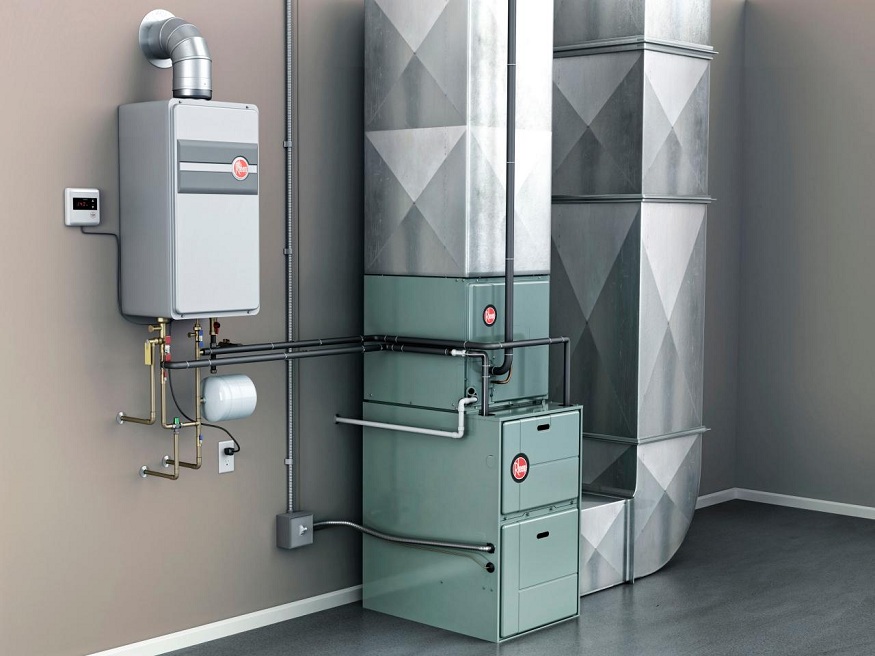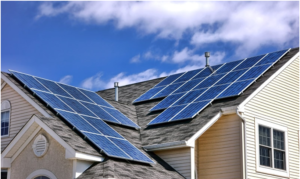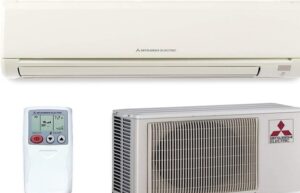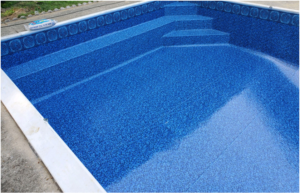The Ultimate Guide to Home Heating Upgrades: Which Option is Right for You?

It’s crucial to check the condition of your home’s heating system before the colder months set in. This will not only keep your house at a reasonable temperature, but it may also reduce your energy costs. Yet, it can be difficult to choose which heating improvement option is best for your home because there are so many to choose from. In this blog, we’ll look at several different heating upgrades so you can choose the one that’s ideal for you.
Upgrade Your Furnace
In order to improve heating efficiency, it is usual practice to replace an older furnace with a newer, more energy-efficient type. Modern furnaces can have a rating of up to 98% efficiency, which means that nearly all of the fuel they consume is transformed into heat. Older furnaces, on the other hand, might only get an efficiency rating of 70%. Upgrades to your heating system provide several benefits, including better energy efficiency, fewer breakdowns, and cleaner air inside your home.
Install a Heat Pump
In places where winters are warmer, heat pumps are a common heating enhancement. These systems can heat and cool your home since they transfer heat from the air outside. Certain heat pump types have efficiency ratings of up to 300%, which means that for every unit of energy required, up to three units of heat are produced.
Consider Radiant Floor Heating
In recent years, radiant floor heating has been an increasingly common choice. Using this method, your home’s interior is warmed by circulating hot water or electricity through pipes or heating mats laid out below the floor. When compared to more conventional heating methods, radiant floor heating is often preferred because of the comfort it delivers. It’s also quite effective at preventing heat from escaping via the roof and walls.
Upgrade Your Boiler
If your home is heated by a boiler, replacing it with a newer, more efficient type will help cut costs and boost efficiency. Modern boilers can have a conversion efficiency of 95%, which means that nearly all of the fuel they consume is transformed into heat. The air quality in your home might be enhanced by upgrading to a newer boiler because of the superior filtration systems included in modern boilers.
Install a Ductless Mini-Split System
Ductless mini-split systems are another heating upgrade option that has been growing in popularity. These setups have one or more indoor units that are linked to an outdoor condenser unit. Some models even reach efficiency ratings of 30 SEER, which is an indication of how effective they are. Each interior unit is thermostatically regulated separately, making it possible to create zones with varying temperatures.
Upgrade Your Thermostat
Lastly, replacing your thermostat is another great way to increase the effectiveness of your home’s heating system. With a smart thermostat, for instance, you may program it to learn your heating and cooling preferences and then set the temperature to save the most money and energy. Some models also have a smartphone app for remote temperature management, giving you even more flexibility and freedom.
Choosing the Right Heating Upgrade for Your Home
There are several aspects to think about before settling on a new heating system for your home. While deciding on a new heating system for your home, it’s important to think about the following.
Home Size
One of the most important aspects of figuring out how much heat is needed for your home is its size. It may take a more powerful heating system to heat a larger home evenly, while a smaller home could get by with a weaker system. Get the right heating system for your home with the help of a professional heating contractor.
Heating Needs
Climate, insulation, and the occurrence of drafts or air leaks are just a few of the elements that influence the amount of heat a home needs. Houses in colder regions may need more powerful heating systems than those in warmer regions. If your home has inadequate insulation or drafts, you may need to take further steps to increase its heating efficiency, such as air sealing or adding insulation.
Budget
The cost of a heating upgrade is an important consideration for most homeowners. Changing to a more efficient heating system may cost more initially, but it will pay for itself in the long run through reduced energy bills. Conversely, while a cheaper heating improvement can save money in the short term, it could end up costing more in the long run due to increased energy consumption.
Energy Efficiency
When deciding on a new heating system for your home, it is important to prioritize energy efficiency. When compared to less efficient heating systems, those that are more efficient use less energy to produce the same amount of heat, which is good for the wallet and the environment. The heating system’s energy efficiency rating and the cost savings it could provide overtime should be taken into account when making a purchase.
Maintenance Requirements
Annual tune-ups are recommended for most heating systems, although some may need to have their filters changed more frequently or have other maintenance performed. Think about the time and money you’ll be spending on repairs and replacement parts before committing to a heating system improvement.
Comfort
When it comes to comfort, different systems supply it to varying degrees. Some allow for more precise regulation of both temperature and airflow, while others are better at keeping the temperature constant. While upgrading your heating system, it’s important to keep your preferred level of comfort in mind.
Conclusion
We at Luca Line Services know how vital it is to have a fully operational heating system for the comfort and efficiency of your house. For this reason, we provide a full variety of heating services, including installation, repair, and maintenance, to keep your system in top shape all year long.






